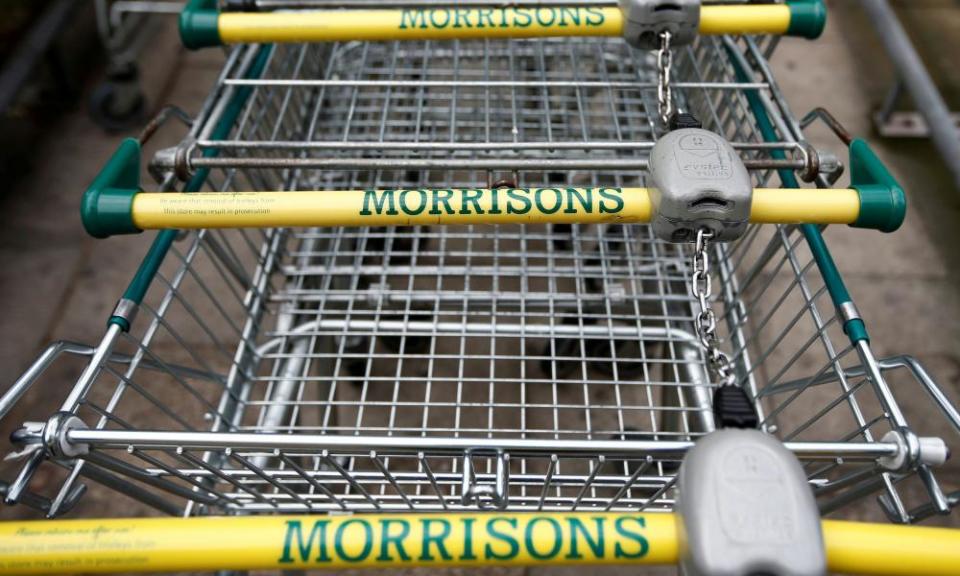Morrisons to cut 3,000 managers and take on more shop-floor staff

Morrisons is axing 3,000 middle managers as part of an overhaul of its store operations that also involves the recruitment of thousands of shop-floor staff.
In the wake of a disappointing Christmas, the Bradford-based supermarket is eliminating higher-paid managerial roles across its near-500 store chain. At the same time, it is creating 7,000 new hourly-paid roles in an effort to improve customer service and reduce the gaps on its shelves. The changes will result in a net increase of 4,000 jobs, with many of the new positions on its Market Street deli counters.
David Lepley, Morrisons group retail director, said: “This proposal means more frontline colleagues improving product availability and helping customers.”
He suggested that some salaried managers might want to take jobs as shop assistants: “Whilst there will be a short period of uncertainty for some affected by these proposals, we will be supporting them through this process, and there are jobs available for everybody who wants to continue to work at Morrisons.”
Joanne McGuinness, national officer at shopworkers union Usdaw, said: “This is a big upheaval for the Morrisons store management team and is devastating news for our members. Despite a large number of hourly-paid roles being created, they will clearly not be a like-for-like position for the managers impacted.”
Morrisons briefed staff on the proposed changes on Thursday morning, according to the industry magazine Retail Week, which first reported the story. It has now launched a consultation over the plans, which is expected to last 45 days.
The big four supermarkets – Tesco, Sainsbury’s, Asda and Morrisons – are all losing shoppers to the German discounters Aldi and Lidl and there was no let-up in the customer exodus over the important Christmas trading period. The tough climate has led the major chains to launch a fresh round of cost-cutting.
On Tuesday, Sainsbury’s said it was cutting management jobs as it pressed on with the integration of Argos, which it bought for £1.4bn in 2016. Earlier this month the Guardian revealed that more than 2,800 Asda workers faced the threat of redundancy as the supermarket chain looked to cut costs. Last year Tesco pushed through several rounds of major job cuts.
With Aldi and Lidl continuing to open new stores around the country, the mainstream groups are being forced to make their businesses leaner to stay competitive on price. Last year Morrisons closed a handful of supermarkets after reviewing the performance of its store network. Morrisons shares have lost almost a fifth of their value over the past 12 months and are currently changing hands for 183p.
Analysts said it was interesting that Morrisons was investing in its meat and fish service counters, given that some of its competitors were actually closing them down. David Potts, Morrisons’ chief executive, who started his retail career working on a deli counter in Tesco, argues that they help differentiate Morrisons stores from rivals.
The restructuring at Morrisons comes at a difficult time for the retail industry, the UK’s biggest private sector employer. It is shedding thousands of jobs amid a wave of disruption caused by the rise of internet shopping, new discount chains and the increasing cost of operating large stores. About 57,000 high street jobs went in the last three months of 2019, according to figures published this week by the British Retail Consortium (BRC). The number of high street jobs has now been contracting for four years in a row, its report said.
BRC’s chief executive, Helen Dickinson, said the scale of job losses was no surprise after the worst year on record for British retail, with overall sales declining for the first time since it started tracking them in 1995. “There were many challenges in 2019: businesses had to contend with the repeated risk of no-deal Brexit, a general election and the ongoing transformation of the industry, leading to weak consumer demand. As a result, employment has suffered in retail.”

 Yahoo Finance
Yahoo Finance 